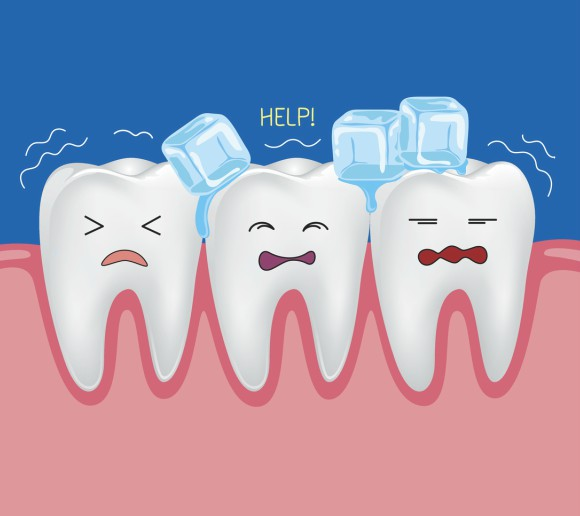When Does Cold Teeth Pain Stop? Expert Remedies

Cold teeth pain, also known as thermal sensitivity, is a common complaint that can range from a mild annoyance to a debilitating condition. It occurs when the teeth are exposed to cold temperatures, causing a sharp, shooting pain that can be quite uncomfortable. But when does cold teeth pain stop, and what can be done to alleviate it?
To understand the duration of cold teeth pain, it’s essential to comprehend its causes. Cold teeth pain is often a result of dentin hypersensitivity, which occurs when the dentin, the layer of tissue beneath the enamel, is exposed. This can happen due to various factors, including receding gums, tooth decay, or worn-out fillings. When cold air or liquids come into contact with the exposed dentin, it can trigger a pain response.
The duration of cold teeth pain can vary significantly from person to person. In some cases, the pain may be fleeting, lasting only for a few seconds after exposure to cold temperatures. However, for others, the pain can persist for several minutes or even hours after the initial exposure. In severe cases, cold teeth pain can become a chronic condition, causing persistent discomfort and affecting daily activities like eating and drinking.
Several factors can influence the duration of cold teeth pain. For instance, the severity of the underlying condition, the effectiveness of oral hygiene practices, and the presence of any underlying medical conditions can all impact the duration of the pain. Additionally, the type of toothpaste used, the frequency of dental cleanings, and the overall health of the teeth and gums can also play a role.
Fortunately, there are several expert remedies that can help alleviate cold teeth pain. One of the most effective ways to reduce thermal sensitivity is to use a desensitizing toothpaste. These toothpastes contain ingredients like potassium nitrate or strontium chloride, which help block the dentinal tubules and reduce the pain response. Dentists often recommend using a desensitizing toothpaste for at least two weeks to experience noticeable improvements.
Another remedy for cold teeth pain is the application of a topical anesthetic. Topical anesthetics like benzocaine or lidocaine can be applied directly to the affected tooth to numb the area and provide temporary relief. These anesthetics can be found in over-the-counter gels, creams, or mouthwashes, and can be applied as needed.
For more severe cases of cold teeth pain, dental treatments may be necessary. Fluoride varnishes, for example, can be applied to the teeth to help strengthen the enamel and reduce sensitivity. Dental bonding or fillings can also be used to cover exposed dentin and prevent further irritation. In some cases, a root canal may be required to address underlying infections or inflammation.
In addition to these remedies, there are several lifestyle changes that can help alleviate cold teeth pain. Practicing good oral hygiene, including regular brushing and flossing, can help prevent the buildup of plaque and tartar, which can exacerbate thermal sensitivity. Avoiding acidic foods and drinks, which can erode the enamel and expose the dentin, can also help reduce cold teeth pain.
Furthermore, using a soft-bristled toothbrush and gentle brushing technique can help prevent further irritation of the gums and teeth. Avoiding extreme temperatures, whether hot or cold, can also help reduce the pain response. Finally, regular dental checkups and cleanings can help identify and address any underlying conditions that may be contributing to cold teeth pain.
In conclusion, cold teeth pain can be a debilitating condition, but there are several expert remedies that can help alleviate it. By understanding the causes and duration of cold teeth pain, individuals can take the necessary steps to address the underlying conditions and find relief. Whether through the use of desensitizing toothpastes, topical anesthetics, or dental treatments, there are many effective ways to manage cold teeth pain and restore oral comfort.
What are the most common causes of cold teeth pain?
+Cold teeth pain is often caused by dentin hypersensitivity, which can be triggered by receding gums, tooth decay, worn-out fillings, or other factors that expose the dentin.
How long does cold teeth pain typically last?
+The duration of cold teeth pain can vary, but it typically lasts for a few seconds to several minutes after exposure to cold temperatures. In severe cases, the pain can persist for hours or even become a chronic condition.
What are some effective remedies for cold teeth pain?
+Effective remedies for cold teeth pain include desensitizing toothpastes, topical anesthetics, fluoride varnishes, dental bonding or fillings, and root canals. Lifestyle changes, such as practicing good oral hygiene and avoiding acidic foods and drinks, can also help alleviate the condition.
How can I prevent cold teeth pain from occurring in the first place?
+Preventing cold teeth pain requires practicing good oral hygiene, including regular brushing and flossing, and avoiding acidic foods and drinks. Regular dental checkups and cleanings can also help identify and address any underlying conditions that may be contributing to thermal sensitivity.
Are there any home remedies that can help alleviate cold teeth pain?
+Yes, there are several home remedies that can help alleviate cold teeth pain, including using a soft-bristled toothbrush and gentle brushing technique, avoiding extreme temperatures, and rinsing with warm salt water to reduce inflammation.
By adopting these expert remedies and lifestyle changes, individuals can effectively manage cold teeth pain and restore their oral comfort. Remember, if the pain persists or worsens, it’s essential to consult with a dentist to rule out any underlying conditions that may require professional attention.
